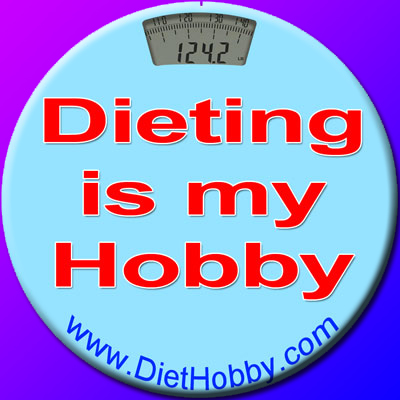The Future
- POSTED ON: Jan 17, 2014
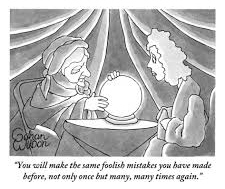
Looking for Progress,
because there's NO Perfection
3500 Calories = 1 Lb ?
- POSTED ON: Dec 12, 2013
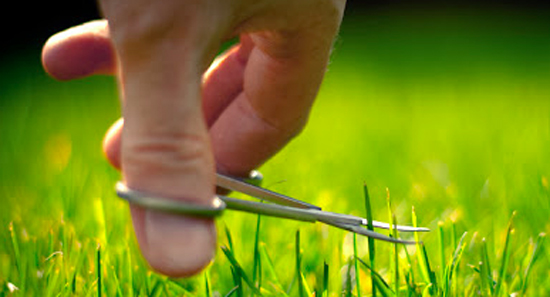
Who Cares if 3,500 Calories Don't Make a Real Life Pound?
by Dr. Yoni Fredhoff, M.D. 12/12/13 @weightymatters
If there's a more painful discussion in nutrition and obesity these days beyond the one that circles the question, "Do 3,500 calories really make up a pound?", I don't know what it is.
So here are some truths.
- People are not walking math formulas whereby if they have 3,500 more or less calories than they burn they'll gain or lose a pound.
- 3,500 calories of one food or type of food will likely have a different impact on health, hunger, thermic effect, and weight than 3,500 calories of another food or type of food.
- Different people have different caloric efficiencies whereby they are seemingly able to extract more calories from food or reserves than others and lose weight with more difficulty (and gain with greater ease).
- And yet here's the only truth that matters.
From a weight management perspective, the currency of weight is calories. While exchange rates undoubtedly do vary between foods and between individuals, you'll always need your own personal deficit to lose, and surplus to gain.
All other discussion, while certainly academically interesting, given that there are No Other Alternate Measures Available to track, or tests to determine individual responses to different calorie sources, serves to foment confusion.
If weight's your concern, more important than anything else is finding a life that you enjoy that contains fewer calories than before. Getting stuck in the minutia of what type of calories may lead to an every so slightly faster or greater loss, rather than truly crafting a life that's enjoyable (and hence sustainable), might help in the short run, but will almost certainly defeat you in the long.
...Weight Management - A Rubber Band
- POSTED ON: Apr 25, 2013
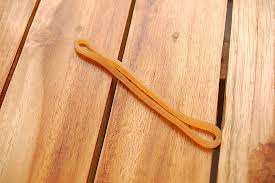

I agree with the following illustration used by Dr. Sharma, M.D. a medical specialist who deals with obesity issues.
Weight Management is like a rubber band.
 Weight Loss is pulling on the rubber band.
Weight Loss is pulling on the rubber band.
Weight Maintenance is KEEP pulling on the rubber band.
The individual question regarding our own Weight Management is:
“HOW MUCH CAN WE PULL ... AND KEEP PULLING?"
This is analogy describes my own lifetime experience. That Truth is especially applicable to my past 7 years of maintenance within the “normal” BMI range, after years of yo-yo dieting up to a high of 271 lbs at 5’0” tall”, with a subsequent total weight loss of 156 lbs. To better visualize this amount, this number was 58% of my TOTAL body weight, which is a similar total amount lost by many of the winners of the “Biggest Loser” television show.
Rubber bands come in different sizes and strength. So do the bodies of people. It naturally follows that the more weight a person loses, the more the "tension of the rubber band". This is why it usually takes far less effort for someone who loses 10 lbs to maintain that weight-loss, than someone who loses 100 lbs.
Bodies appear to have a Set Point, which is like a rubber band in it's natural state .. unstretched. However, it is clear that weight-gain will drive the body's natural Set Point higher. Although most people hope and pray that weight-loss will re-set that altered Set Point back to a lower number, all available evidence indicates that this is a one-way--upward-only--survival path. Click link for more information about Set Point.
![]() I’ve been reading a great many things written by Dr. Sharma. At this point, I have a lot of respect for his expertise and point of view.
I’ve been reading a great many things written by Dr. Sharma. At this point, I have a lot of respect for his expertise and point of view.
I like the fact that Dr. Sharma believes that people need to stop beating themselves up for a lack of motivation, and understand that there are very good reasons why they struggle with their weight. He says:
Interpretating Peptides, Food Intake, and Body Weight
- POSTED ON: Mar 31, 2013

Today I watched a technical, but interesting, video of a University lecture given on March 26, 2013 by Stephen C. Woods about Peptides, Food Intake and Body Weight: Problems of Interpretation.
Peptides are organic substances of which the molecules are structurally like those of proteins, but smaller. Peptide Hormones include insulin, leptin, ghrelin, glucagon, growth hormone, obestatin as well as many, many others.
For many years Dr. Woods has been involved in obesity scientific research, primarily re insulin.
He said that a key question is whether the Responses that counter drug/food effects are actually Unconditional, invariant and whether or not traditional concepts of Homeostatsis are viable.
In considering this question, note the following:
Homeostaisis --- Unconditioned stimulas equals Unconditioned Response.
There are ...
Homeostatic Controls - Hypothalamus (part of the brain primarily involved with involuntary stimulas and response of Peptides)
and....
Non-Homeostatic Controls – Amugdala, Accumbens, etc ( parts of the brain involving Anxiety, social situations, learning, hedonics, etc.)
The process of Homostaisis can be disturbed by Non-Homeostatic Controls.
Food intake involves BOTH types of Controls at the same time. Food intake is a Behavior which involves BOTH (unconditioned) physiological and (conditioned) psychological factors: An Example of a Conditioned stimulas and Conditioned response is Pavlov’s dog.
Based on his many years of involvement with scientific research re Peptides, Dr. Woods states the following Conclusions:
Conclusion 1:
Different labs get different results when administering Peptides and assessing food inake.
Conclusion 2:
Peptides alter food intake in some situations and not others.
Conclusion 3:
The ability of a Peptide to alter food intake varies within the same lab.
Conclusion 4:
Subtle, or not so subtle, environmental factors can determine whether a Peptide influences food intake, and can even reverse the direction of the response.
To watch the lecture click the following link: Peptides, Food Intake and Body Weight: Problems of I...
More About Calories
- POSTED ON: Mar 21, 2013
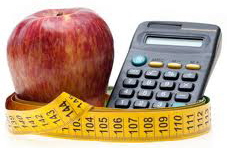 For the past eight-and-a-half years I’ve entered all of my daily food into a computer program that tells me the micronutrients in that food, including calories. The computer program that I choose to use is called DietPower.
For the past eight-and-a-half years I’ve entered all of my daily food into a computer program that tells me the micronutrients in that food, including calories. The computer program that I choose to use is called DietPower.
I’ve written quite a lot about calories, including the impossibility of achieving a totally accurate calorie count. Below are links to two of those articles:
Do Calories Matter?
Calorie Detective – Lying Food Labels
A calorie is simply a measurement of energy, the amount of heat that something gives off through chemical processes. This is an “inexact” scientific concept which has been simplified for general use. Although there is nothing “perfectly accurate” about a calorie measurement, at this time there doesn’t appear to be an alternative way for Science to better measure the potential energy which is contained inside foods.
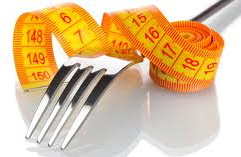 For me, “counting calories” is personally helpful as a “general” measuring tool,
For me, “counting calories” is personally helpful as a “general” measuring tool,
while understanding that:
- All bodies are not the same.
- It is important not to put too much Faith into the exact calorie numbers that “Experts” SAY one’s body burns.
- It is important not to put too much Faith into the exact calorie numbers allegedly contained in any food item.
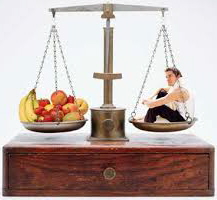
Even though it is true that our bodies process different macronutrients differently, … at the end of the day… it still remains that if a body consumes more energy than a body expends, it will accumulate fat.
The article below states the Paleo / Low-Carb position against using calories as a food measurement tool, which is basically: “The concept of the “calorie”, as applied to nutrition, is an oversimplification so extreme as to be untrue in practice.”
There Is No Such Thing As A “Calorie” (To Your Body)
by J. Stanton, online Paleo blogger,
&n...
<< Newest Blogs << Previous Page | Page 7 | Page 8 | Page 9 | Page 10 | Page 11 | Next Page >> Oldest >>



